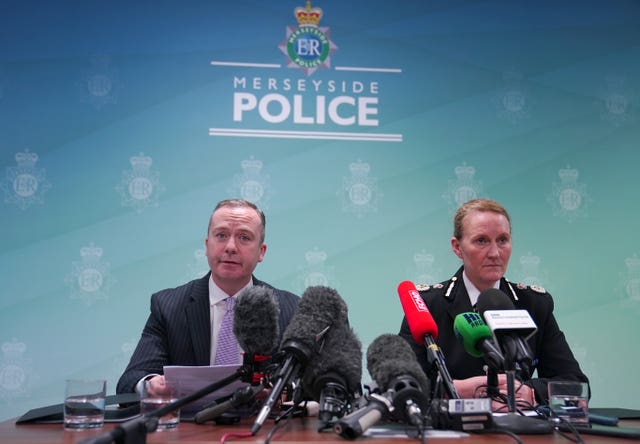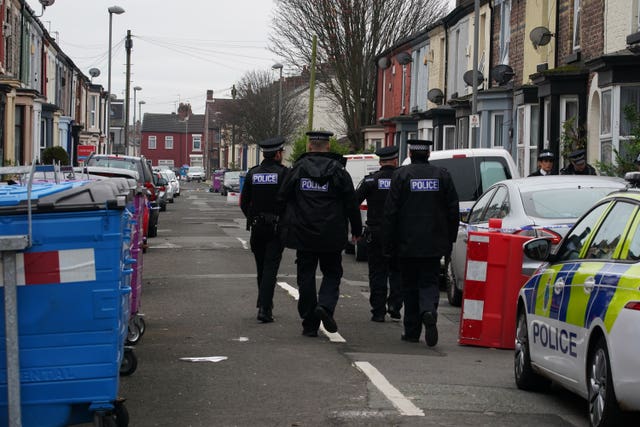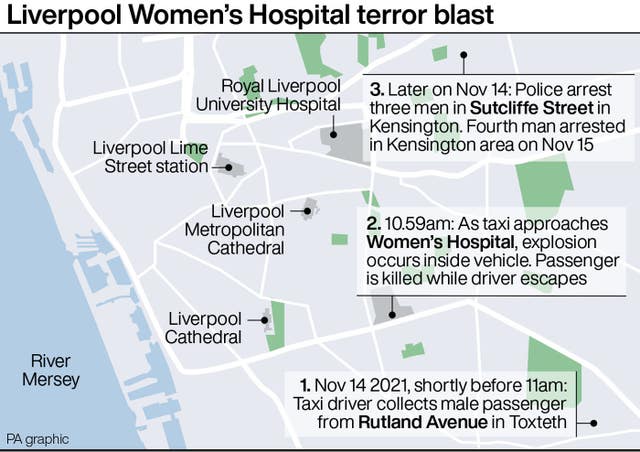Liverpool hospital blast declared terrorist attack as taxi driver hailed a hero
Police said the motive for the attack is unclear.

A suspected terrorist blew himself up with a homemade bomb in a taxi outside a Liverpool hospital on Remembrance Sunday while the driver, who managed to escape alive, has been branded a hero.
Police have declared the blast from a car outside Liverpool Women’s Hospital shortly before 11am on Sunday a terrorist attack but said the motive was unclear.
In the wake of the attack, the UK terror threat level was raised to severe, meaning an attack is highly likely, and Prime Minister Boris Johnson was set to host an emergency Cobra meeting on Monday afternoon in response to the incident.
“And our freedoms and our way of life will always prevail.”
Assistant Chief Constable Russ Jackson, from Counter-Terrorism Policing North West, said the man who died in the blast brought a homemade bomb with him into a taxi and asked to be taken to the hospital.
He was picked up in the Rutland Avenue area of the city and as the car reached the hospital’s passenger drop-off point, it exploded.
MI5 is assisting the police with the investigation.
The driver of the cab, named locally as David Perry, was treated in hospital after fleeing the car just before it burst into flames, and has now been discharged.
He was praised by the Prime Minister for behaving with “incredible presence of mind and bravery”, and lauded for his “heroic efforts” by the mayor of Liverpool, Joanne Anderson.
Speaking to journalists at Merseyside Police headquarters, Mr Jackson said: “It is not clear what the motivation for this incident is.
“Our inquiries indicate that an improvised explosive device has been manufactured and our assumption so far is that this was built by the passenger in the taxi.

“We are of course aware that there were Remembrance events just a short distance away from the hospital and that the ignition occurred shortly before 11am.
“We cannot at this time draw any connection with this but it is a line of inquiry we are pursuing.
“Although the motivation for this incident is yet to be understood, given all the circumstances it has been declared a terrorist incident and counter-terrorism policing are continuing with the investigation.”
He told journalists that police know the identity of the attacker but will not confirm it at this stage.
The suspect is understood to be of Middle Eastern origin and reportedly settled in Britain several years ago.
Official sources confirmed to the PA news agency that the man who died was not previously known to the security services.
Officers searched two addresses – one in Sutcliffe Street and a second at Rutland Avenue in Sefton Park, where “significant items” were found, he said. A cordon is in place and eight families have been evacuated as a result.
On Monday afternoon a controlled explosion was carried out in Sefton Park “as a precaution” as part of the investigation, police said.

They are looking into his associates, telephone records and purchases he may have made.
Matthew Heitman, 26, who lives opposite the raided house in Sutcliffe Street, said: “Two of the men were marched out at gunpoint and they had them up against the wall.
“There wasn’t any kind of struggle, they just walked out of the front.
“The people living there had not long moved in, maybe weeks or months.”
Another neighbour, Sharon Cullen, said she thought four men aged about in their 20s lived at the address.

Mrs Cullen said she and her husband, 22-year-old daughter and two-year-old grandson were evacuated from their home at about 9.45pm on Sunday.
She said: “The police pounded on my door and an officer said ‘we need to get you out of the house as soon as possible’.
“They said ‘whatever is going on at the back of the house, it could blow the block’.
“It was really frightening.”
Kathryn Thomson, the chief executive of Liverpool Women’s Hospital, said in a statement the last two days had been “extremely upsetting and traumatising” for people associated with the hospital.
She added that despite security and police on site, services are now running “as close to normal as can be expected”.





